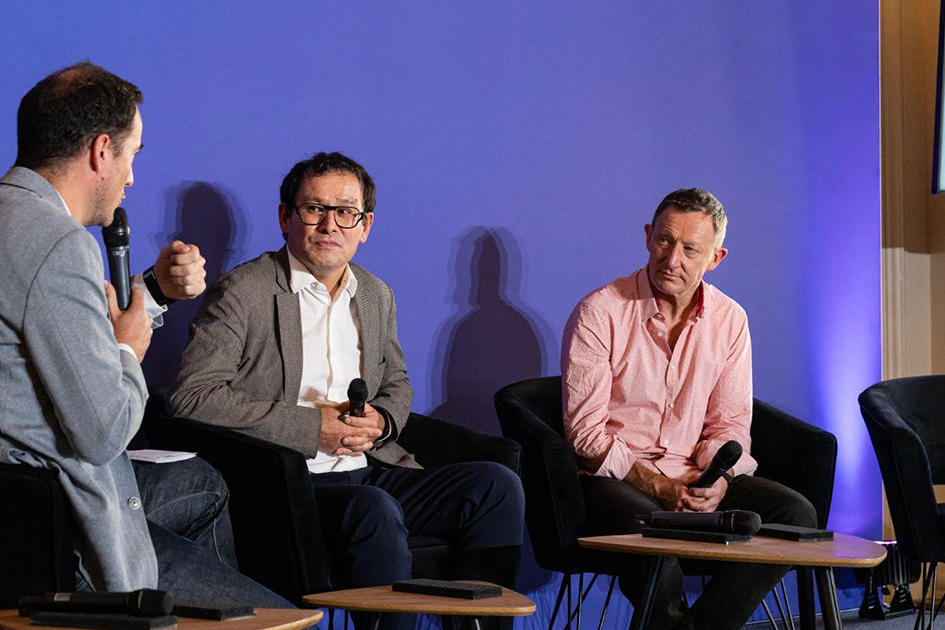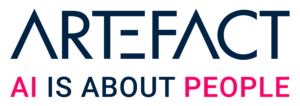AI for Industry Summit by Artefact - September 17th, 2024 - Paris
Key learnings from the panel discussion with Rodolphe Gelin, Expert AI and Robotics at Renault Group, Vincent Cadoret, Chief Data and Analytics Officer at Europcar Mobility Group, and Franck Bonnay, Key Account Executive at Google Cloud.
Introduction to AI transformation in automotive
The “AI for Automotive” panel discussion, hosted by Franck Bonnay from Google Cloud, featured insights from Rodolphe Gelin, Expert in AI and Robotics at Renault Group, and Vincent Cadoret, Chief Data and Analytics Officer at Europcar Mobility Group. The conversation revolved around how AI is transforming the automotive industry, focusing on advancements in self-driving technology, enhanced user experiences, and the optimization of business processes. Rodolphe emphasized how Renault is integrating AI across various functions like engineering, manufacturing, and supply chain, while Vincent discussed Europcar’s early stages of AI deployment, which include business solutions like customer data platforms and AI-driven decision-making.
Europcar’s early AI journey and strategy
Vincent explained that Europcar has initiated a data lab to explore AI use cases, such as predicting the residual value of vehicles and optimizing digital marketing campaigns. He highlighted the importance of aligning AI initiatives with the company’s broader strategy, stressing that their focus is primarily on decision-support systems for internal processes. To support AI development, Europcar has created a governance structure with data champions across departments to ensure projects are prioritized based on business needs.
Renault’s advanced AI integration and data foundation
On the other hand, Renault is further along in its AI journey, having implemented AI solutions across the organization, including in manufacturing. Rodolphe underscored the importance of building a strong data foundation before deploying AI, stating that AI projects can only succeed if data is collected, organized, and made accessible efficiently. He gave the example of AI-driven visual inspection systems for manufacturing, which began as pilot projects and were later industrialized and scaled across multiple factories through a centralized “center of excellence.”
Scaling AI in manufacturing and supply chain
In terms of scaling AI, Renault has moved from proof-of-concept (PoC) projects to full-scale implementations. The company now focuses on 20 high-impact AI projects, particularly in manufacturing and supply chain optimization. For instance, Renault uses AI to optimize truck routes for supply chain logistics, resulting in significant operational efficiencies. Rodolphe also mentioned the use of symbolic AI for planning and scheduling, in addition to neural network-based solutions for quality control in manufacturing.
Importance of data in AI success
Both speakers emphasized the critical role of data in making AI projects successful. Vincent noted that Europcar is working on creating a homogeneous data ecosystem to ensure the seamless integration of AI across all business units. Rodolphe echoed this sentiment, adding that Renault is working on integrating data from various value streams, such as manufacturing, supply chain, and procurement, to maximize the effectiveness of AI solutions.
Generative AI and its emerging use cases
The discussion then shifted to the topic of generative AI. Rodolphe shared Renault’s experiences with using generative AI to analyze customer feedback and assist with diagnosing vehicle issues based on customer complaints. Vincent expressed excitement about the potential of generative AI to improve productivity in customer service and beyond. Both panelists agreed that generative AI’s real value lies in its ability to empower non-technical users to invent new ways of working, though Vincent noted that more collaborative, organization-wide use cases are still emerging.
The role of partnerships in AI development
Finally, the panel concluded with a discussion on the importance of partnerships in the AI ecosystem. Rodolphe emphasized the value of working with companies like Google, which help Renault stay at the forefront of AI innovation. Vincent echoed the sentiment, highlighting the need for constant inspiration and feedback from AI leaders like Google to ensure they are on the right path with their AI initiatives. Both speakers agreed that collaboration with external partners is essential for keeping up with the rapid pace of AI development in the automotive sector.

 BLOG
BLOG



